A survey carried out by the University of Aveiro has shown that rewilding efforts in Portugal’s Greater Côa Valley are helping roe deer return to the landscape. This is good news for Iberian wolves – and for local farmers.
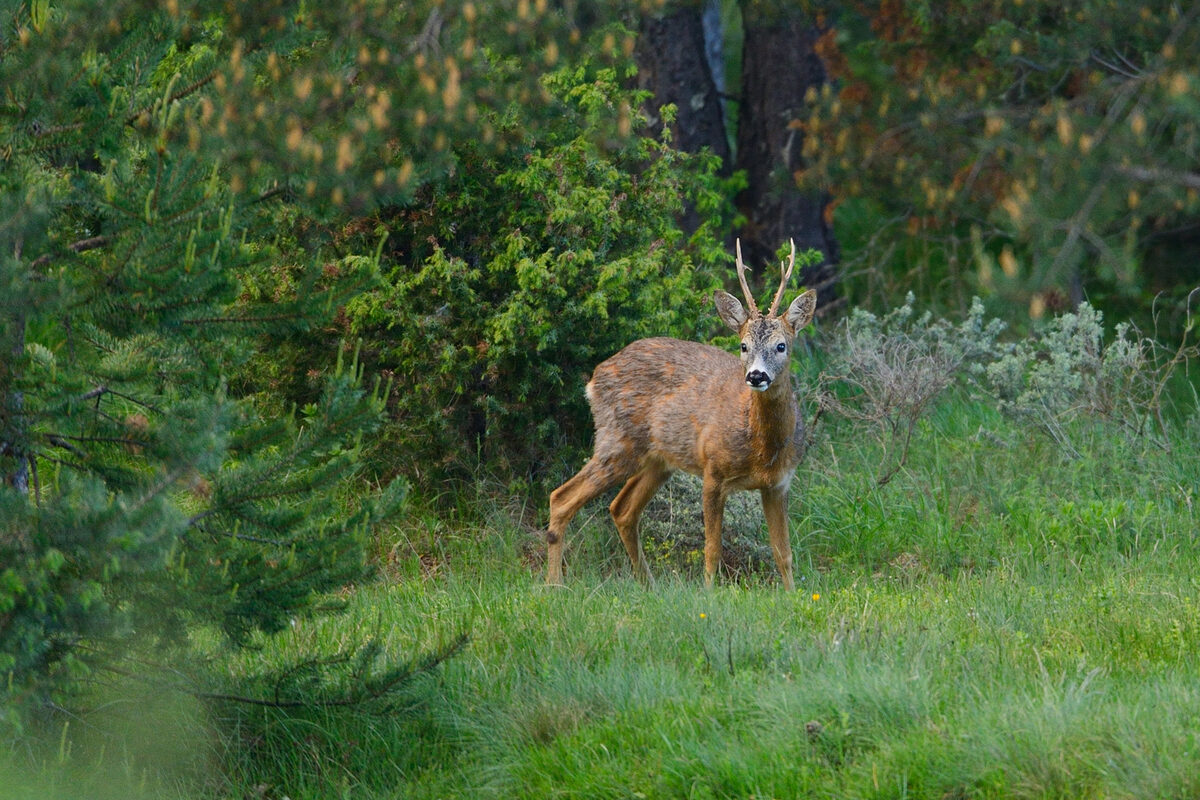
Enhancing human-wolf coexistence
Iberian wolves are keystone predators that help to maintain the health and functionality of wild nature. South of the Douro River, the Rewilding Portugal team have been working to support the recovery of the local Iberian wolf population, which currently comprises a handful of scattered packs. A lack of natural prey, such as roe deer, means these packs have no choice but to prey on livestock, which causes conflict with farmers and often results in the animal’s persecution. This is why the team initiated a livestock guard dog programme, which recently saw the 101st dog handed over to a local farmer.
The Rewilding Portugal team have also been carrying out measures to support roe deer comeback south of the Douro since 2019. These also have the potential to enhance human-wolf coexistence by helping to reducing wolf predation on livestock. The measures, which involve habitat restoration and the establishment of hunting no-take zones, are part of a scaled up rewilding programme, carried out with funding from the Endangered Landscapes & Seascape Programme and the LIFE Programme of the European Commission.
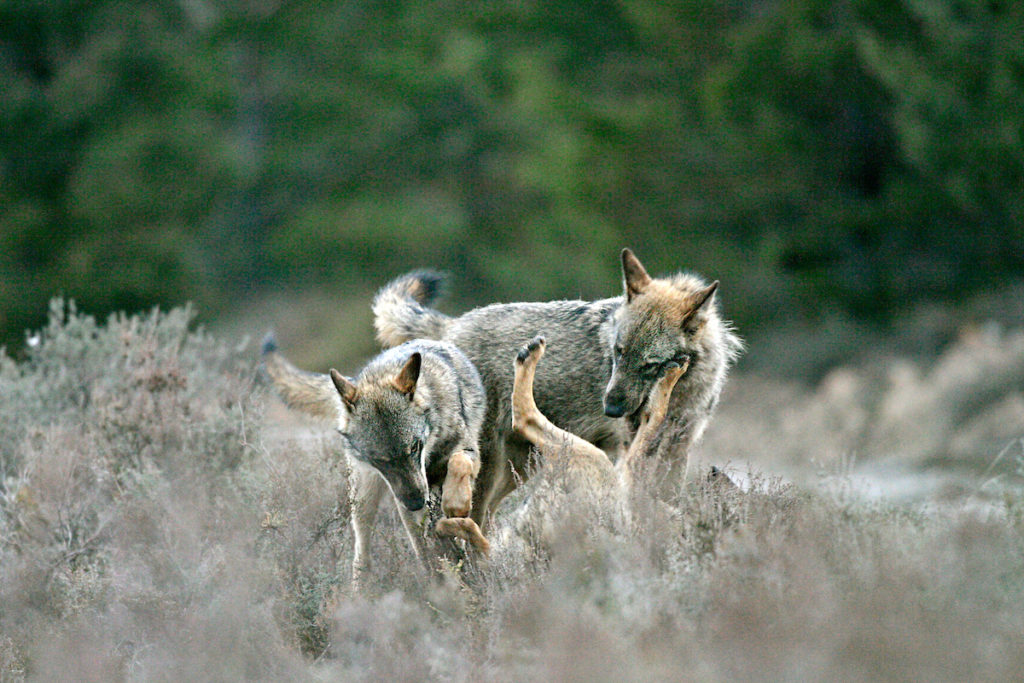
Positive impact
A recently completed survey, carried out by the University of Aveiro, has revealed that Rewilding Portugal’s efforts to support roe deer comeback are already having a positive impact. The survey, which involved camera trapping and pellet counts at sites in and around the Greater Côa Valley, compared results from 2019-20 and 2022-23. This was the first time that roe deer monitoring had been carried out in a systematic way across the entire current range of the Iberian wolf south of the Douro.
“The upward trend in roe deer abundance and range is very welcome,” says Sara Aliácar, Rewilding Portugal’s rewilding manager. “While roe deer are returning to the landscape regardless of rewilding measures, our efforts are helping to reinforce the process. Collaboration with parishes, landowners, and hunting associations has been vital to the success of these efforts.”
The survey revealed roe deer population growth in all the sampling areas, including core areas of the Greater Côa Valley wildlife corridor, coinciding with the start of rewilding efforts designed to support roe deer comeback. Significantly, it revealed notable increases in roe deer numbers within all the rewilding sites where the Rewilding Portugal team have been carrying out restoration measures, such as Vale Carapito, Paúl de Toirões, and Ermo das Águias. Populations of wild boar, another important prey species for Iberian wolves, also showed a significant increase in all the sampling areas.
“The increasing availability of natural prey for Iberian wolves south of the Douro will help to maintain the long-term viability of wolf subpopulations,” says Aliácar. “It is also good news for farmers. Wild prey has been scarce in the survey area for decades – if wolves have an alternative, predation on livestock will potentially decrease.”
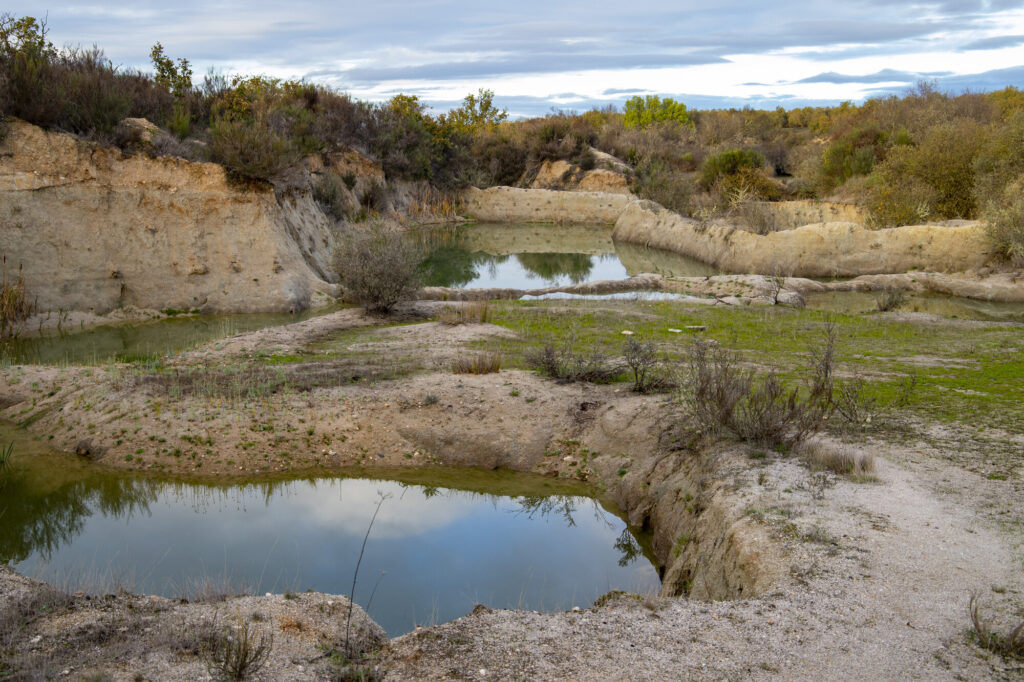
Promoting population expansion
To support roe deer comeback, the Rewilding Portugal team have carried out a range of measures to restore habitat in and around the Greater Côa Valley. They have supported local hunting associations and managers of common land in the creation of 35 ponds, the restoration of areas that have been burned by wildfire, planting to recover the seed banks of trees, and the clearing of shrubs to restore grassland, promote natural regeneration, and reduce fire risk. Within rewilding sites, several hectares of land have been declared no-take hunting zones. Across the survey area the hunting of roe deer is limited, as population densities are too low.
In terms of their return to the Greater Côa Valley rewilding landscape, the survey results show roe deer moving from south to north, and from east to west. The highest abundances of roe deer are currently in the south of the landscape.
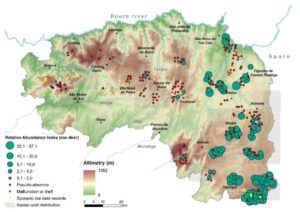
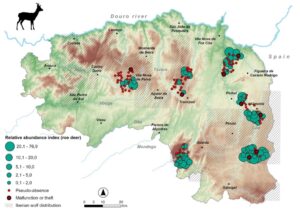
“While roe deer are already widely distributed across the Greater Côa Valley, moving forwards efforts should focus on promoting the westward expansion of the species,” says Sara Aliácar. “In collaboration with the University of Aveiro, we have developed a hunting management plan with local hunting associations encompassing 16,000 hectares of land. It’s important such associations are involved in measures to support the ongoing comeback.”
The availability of other wild prey species for Iberian wolves south of the Douro may soon become a factor in helping to reduce livestock predation. Following the reintroduction of red deer in central Portugal in the 1990s and early 2000s, the Rewilding Portugal team are now recording the species for the first time in the Greater Côa Valley. They are also advocating for the reintroduction of Iberian ibex in the Serra da Estrela Natural Park. A subspecies of Iberian ibex – the Portuguese ibex – used to be widespread across rugged areas of Portugal, but hunting and habitat loss drove it to extinction in the 1870s. Following reintroductions, another subspecies – the Western Iberian ibex – is now present in small numbers in northern Portugal’s Peneda-Gerês National Park.
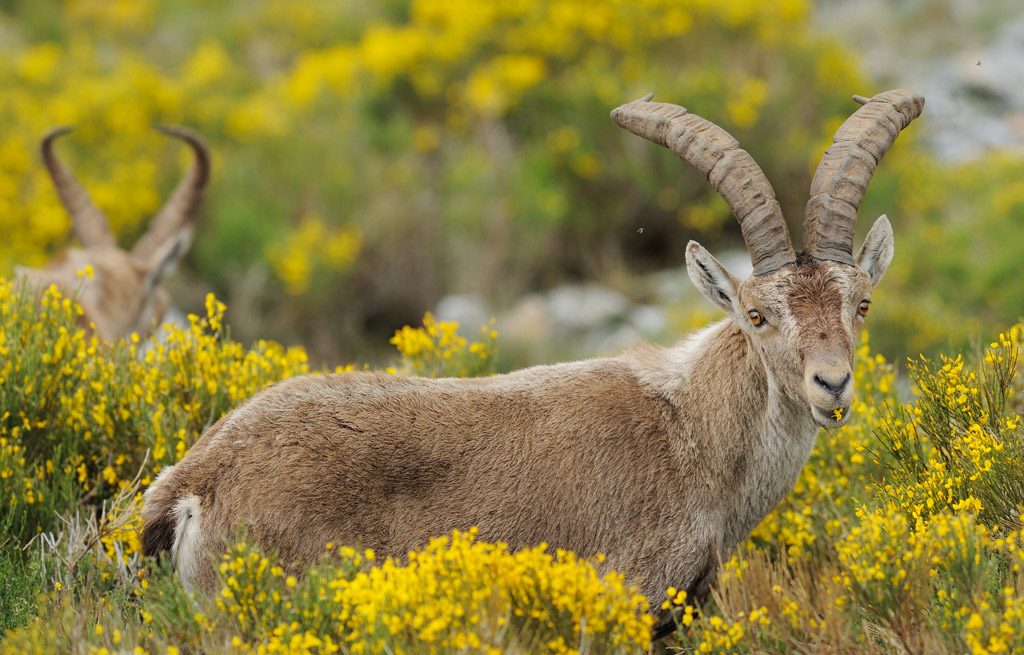
Ongoing monitoring
Moving forwards, the Rewilding Portugal team will continue roe deer monitoring within the rewilding sites distributed across the Greater Côa Valley rewilding landscape. Monitoring will also be carried out by the team and the University of Aveiro as part of the recently launched LIFE LUPI LYNX initiative, which will see a range of partners collaborate to support the recovery of Iberian lynx and Iberian wolf populations south of the Douro River in Portugal and Spain.
